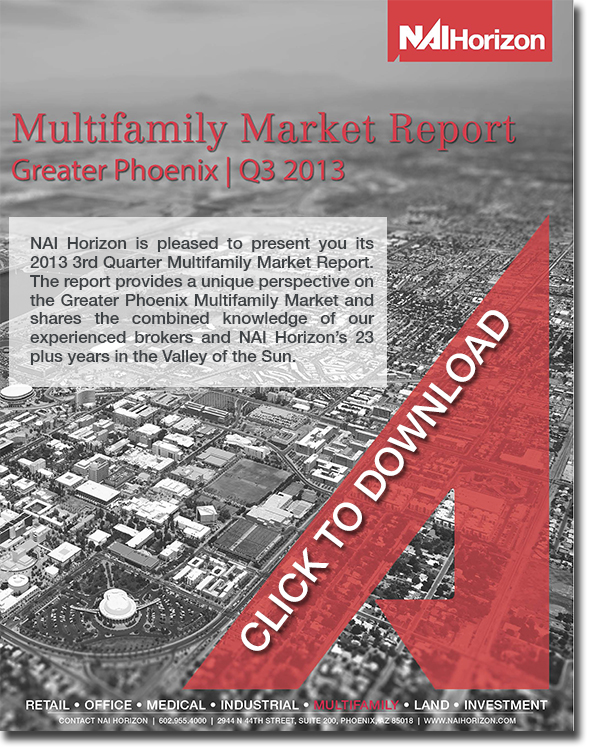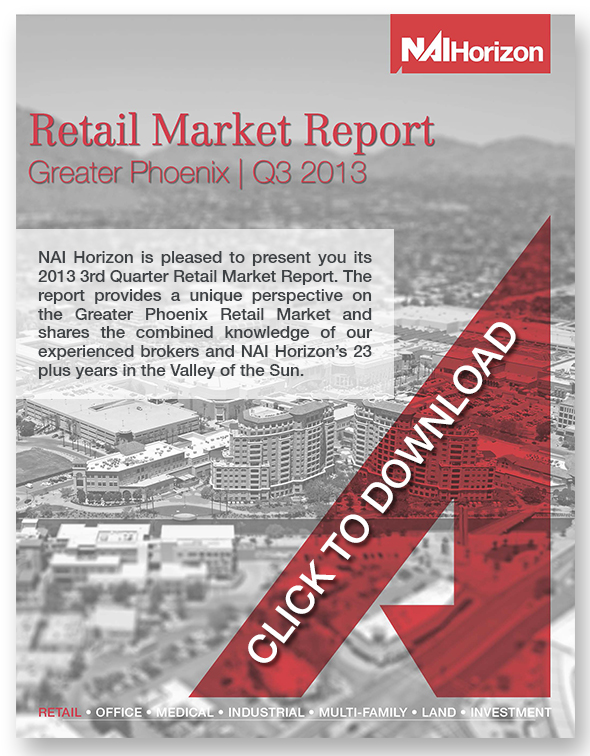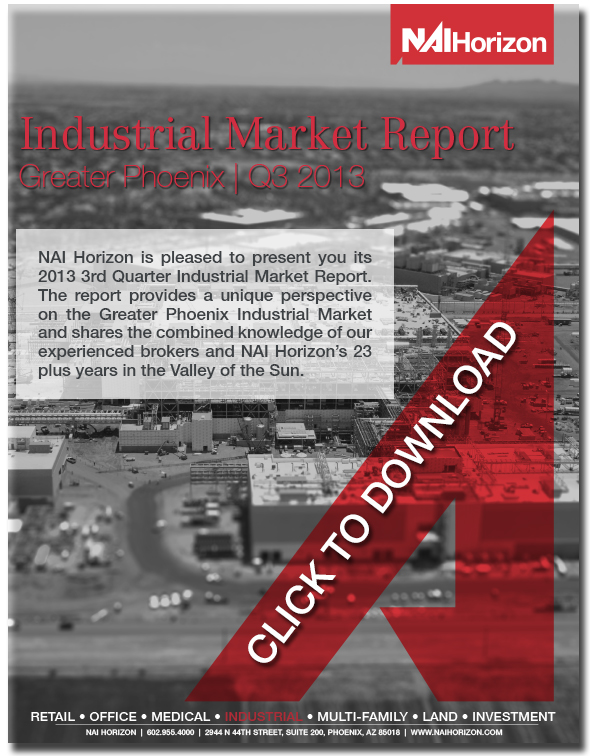Recovery has been tracked on a nationwide scale as well. The six major metro areas have averaged a price recovery of 90% of peak compared to non-major metro areas averaging a 75% recovery. Of these six major metro areas, two have met previous peak-price levels, compared to just three among the remaining non-major metros nationwide, including Dallas, Houston, and Austin. Increased purchasing activity was also recorded across all property types in the U.S. as of August, with a recent influx of institutional and private buyers for retail properties causing prices to rise faster for the retail sector than others. Conversely, the multifamily sector has experienced a slowing of price gains after consistently leading the other sectors, potentially due to the slowing of the recent rush to rent by those hit in the housing downfall. Sales of significant commercial property nationwide totaled $24 billion in August, up 12% year-over-year.
Category Archives: Market Trends
Q3 2013 – NAI Horizon Retail Market Report
The retail market continues to show signs of improvement on its long road to recovery. Vacancy continued to fall this quarter to the lowest it has been since the beginning of 2009, coming in at 10.6%. Just one year ago, the retail vacancy rate for the Phoenix Metro market sat at 12%, with the highest rate, 13%, in 2011. Demand for retail space continued to improve as well, 1.2 million SF of space was absorbed in the Valley. The East Valley submarket cluster made up more than 60% of that total with 818,444 SF absorbed. As the fourth quarter historically records as the strongest quarter for retail, 2013 has the potential to be the strongest year, in terms of net absorption, that the valley has seen since 2008. Already this year space absorbed has surpassed the 2012 value by almost 200,000 SF, with a strong fourth quarter still to come.
Q3 2013 – NAI Horizon Industrial Market Report
The industrial sector has leveled out after years of positive activity even during the recession. In the past several years, the sector performed better than other sectors in Metro Phoenix due to high demand and low inventory. After an impressive first quarter of this year with 1.3 million SF absorbed, the second and now third quarter of 2013 have not followed suit. Vacancy has ticked higher this quarter and last primarily due to large deliveries of distribution space, over 3.9 million SF this year, and obsolete space that continues to plague the market. At least 25% of the industrial inventory in Phoenix can be considered obsolete, while some areas, such as the Sky Harbor submarket, are looking at an even higher percentage of untenantable space. This leaves room for new development that is currently needed to meet demand, and can adapt to the new needs of the changing market. In the Southwest Valley, shovel ready sites are awaiting the possibility of large users moving into the market, either from leaving less hospitable markets, or from the change e-commerce continues to have on the industrial and retail markets. As the traditional shopping experience evolves, larger warehouses to support online shopping will increase the amount of big box spaces needed. However, in preparing for these possibilities, and as larger tenants have hit the Phoenix market, these big box spaces have skewed the real picture of vacancy in the valley; smaller freestanding buildings, 10,000-50,000 SF, continue to be in higher demand. Despite the lull seen in the last two quarters as users and investors proceed cautiously due to economic uncertainty, the long term prospects for the Phoenix industrial market look positive.



